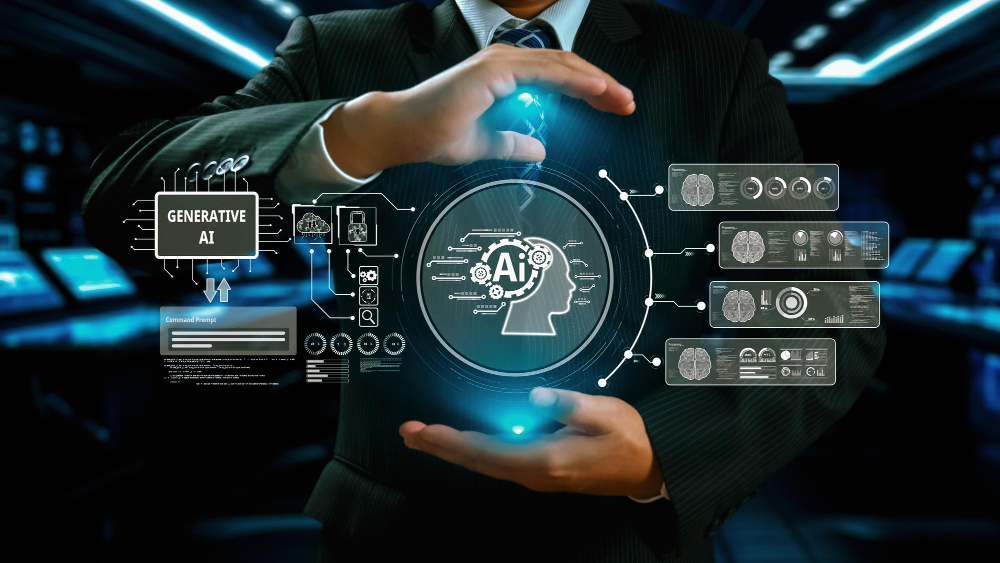Introduction
AIaaS, which stands for artificial intelligence as a service, is effecting an operational transformation of corporate entities. Nevertheless, the practical integration of AI into pre-existing frameworks tends to exhibit considerable financial demands along with substantial complexities.
The market for AIaaS is expected to grow at a remarkable compound annual growth rate (CAGR) of 31.9%, from USD 13.46 billion in 2024 to USD 123.6 billion by 2032. This expansion indicates a significant change in the way companies can access and apply AI technology.
Companies can now obtain innovative AI tools and technologies on demand rather than developing AI capabilities from the ground up. This change is revolutionary rather than merely a fad.
The use of the latest launched tools is essential to outrank your competition. Businesses can use AI without investing heavily in infrastructure or specialized knowledge. This can be done through AI as a Service. This blog will detail AIaaS, including its definition, advantages, uses, difficulties, and potential directions.
What is AI as a Service?
AI as a Service (AIaaS) is a cloud-based service that permits enterprises to rent out artificial intelligence services while avoiding the necessity of constructing or evolving the requisite infrastructure internally. AIaaS platforms offer a variety of AI services and tools, including machine learning, computer vision, natural language processing, and more.
Key Components and Features
AIaaS generally includes several essential components:
- Machine Learning (ML): Algorithms that allow computers to learn from data and make predictions or decisions based on that data.
- Natural Language Processing (NLP): Tools that train computers to understand, interpret, and process human language.
- Computer Vision: Technology that helps computers interpret and understand the visual environment.
Who Provides AI as a Service?
Several major tech companies and specialized providers offer AIaaS. Some of the most prominent include:
-
Google Cloud AI
-
-
- TensorFlow: An open-source framework for machine learning.
- AutoML: Tools for building custom machine learning models with minimal coding.
- AI Platform: For managing and deploying machine learning models.
- Natural Language API: For text analysis and natural language understanding.
-
-
Amazon Web Services (AWS) AI
-
-
- Amazon SageMaker: A fully managed service for building, training, and deploying machine learning models.
- Amazon Rekognition: A service for image and video analysis.
- Amazon Comprehend: For natural language processing.
- Amazon Lex: For building conversational interfaces using voice and text.
-
-
Microsoft Azure AI
-
-
- Azure Machine Learning: A cloud service for building and deploying machine learning models.
- Cognitive Services: APIs for vision, speech, language, and decision-making.
- Bot Service: For developing intelligent bots.
- Azure Databricks: For big data analytics and machine learning.
-
-
IBM Watson
-
-
- Watson Studio: A collaborative environment for data scientists, application developers, and subject matter experts to build and train AI models.
- Watson Assistant: For creating conversational interfaces.
- Watson Discovery: For AI-powered search and content analytics.
- Watson Natural Language Understanding: This is for analyzing and understanding text.
-
Benefits of AI as a Service for Modern Enterprises
AIaaS offers numerous benefits, making it an ideal choice for businesses wishing to use artificial intelligence.
Cost Efficiency and Scalability
AIaaS offers cost-effective solutions. AI implementation involves expensive investment in the right talent, software, and infrastructure. Still, AIaaS drives down these costs with a pay-as-you-go approach that augments on-demand usage, which allows businesses to be agile enough to achieve the right performance and scalability for their needs.
Accessibility to Advanced AI Technologies
Modern AI technologies are more widely accessible through AIaaS. These days, AI can also be used by small businesses without requiring costly infrastructure or internal experts. Due to its accessibility, businesses of all kinds can compete more successfully and level the playing field.
Faster Time to Market
Due to AIaaS, organizations can easily deploy AI solutions. They can quickly launch their AI-powered products using pre-built models and external AI expertise.
Enhanced Decision-Making Capabilities
AIaaS can help companies make use of AI tools better to analyze data and make smarter decisions. AIaaS assists Organizations can identify patterns, make future projections, and improve their strategies through real-time analysis of massive data sets.
Improved Customer Experience
Customer experience is the make or break point of business. Businesses can improve their customer success rate by using chatbots with AI capabilities and personalized recommendations.
Key Applications of AI as a Service
AIaaS is transforming various aspects of business operations. Some key applications include:
1. Predictive Analytics and Data Analysis
Predictive analytics and data analysis are areas where AIaaS shines. It enables companies to extract valuable insights from vast amounts of data. Retailers, for example, can create more successful marketing campaigns by using AIaaS to forecast future purchasing trends and analyze customer behavior.
Use Cases Across Industries
- Retail: Predicting customer preferences and optimizing inventory management.
- Healthcare: Analyzing patient data to improve diagnosis and treatment plans.
- Finance: Assessing risk and predicting market trends.
2. Customer Service and Support
AIaaS is reshaping customer service by using chatbots and virtual assistants. These Generative AI-driven services and tools can swiftly and accurately handle a large number of customer queries, easing the burden on human agents. As a result, customer interactions are smoother, leading to higher satisfaction levels.
Use Cases
- E-commerce: Automated customer support via chatbots.
- Telecommunications: Virtual assistants that troubleshoot common issues.
- Banking: AI-driven customer service for account inquiries and transactions.
3. Automation of Business Processes
Many corporate processes are being automated by AIaaS. By using AI, businesses can reduce errors, simplify operations, and increase efficiency. Data entry and complicated decision-making processes are two examples of automated tasks.
Examples of Automated Tasks
- Manufacturing: Predictive maintenance and quality control.
- Finance: Automated invoicing and payment processing.
- Human Resources: AI-driven recruitment and onboarding processes.
4. Fraud Detection and Security
AIaaS is essential for improving fraud detection and security. AIaaS can detect possible threats instantly by examining trends and abnormalities in data. It provides companies with the chance to guard against and stop fraud by taking proactive measures.
Real-World Examples
- Banking: Detecting unusual transaction patterns to prevent fraud.
- E-commerce: Identifying and blocking fraudulent transactions.
- Cybersecurity: Monitoring network traffic for signs of cyberattacks.
Challenges & Considerations
In the domain of AI as a Service (AIaaS), while numerous advantages exist, it is imperative for enterprises to stay aware of the potential challenges and considerations.
Data Privacy & Security Issues
A major concern about AIaaS is security and privacy of data. It is mandatory for organizations to verify that the AIaaS providers they work with comply with data privacy laws and have robust security protocols in place to protect confidential data.
Adaptability to Existing Systems
The integration of AIaaS with legacy systems is a significant challenge, particularly for businesses burdened by outdated infrastructure. Businesses need to plan and implement a careful integration process strategy in order to minimize operational disruptions and guarantee smooth functionality.
Skill Gaps and the Necessity for Training
As advanced AI technologies become more accessible, it’s still essential to have skilled personnel to manage them effectively. To harness the full potential of AIaaS, companies may need to invest in staff training or even bring on additional employees.
Cost Implications for Small and Medium-Sized Enterprises
While AIaaS is generally more affordable than traditional AI systems, the costs can still be significant for small and medium-sized enterprises (SMEs). It’s crucial for these businesses to carefully consider both the benefits and the potential financial impact before moving forward with AIaaS implementation.
Future Trends in AI as a Service
AIaaS continues to evolve, with new technologies and innovations shaping its future.
Emerging Technologies and Innovations
As AIaaS develops, we can expect to see:
- Edge AI: Moving AI capabilities closer to data sources for faster processing and reduced latency, particularly useful for IoT devices and real-time analytics.
- Explainable AI: Creating AI systems that can clearly explain their decisions and predictions, enhancing transparency and trust.
- AI Integration with 5G: Leveraging the speed and low latency of 5G networks to improve AI application performance and enable new use cases.
The Role of AIaaS in the Future of Work
AIaaS is expected to impact the future of work significantly. By automating repetitive tasks and providing advanced data analysis tools, AIaaS can allow employees to focus on more strategic and creative work. This shift may change job roles and require new skills, highlighting the importance of continuous learning and adaptability.
Future Predictions
In the next ten years, AIaaS is expected to become even more important for business operations. With the development of technology, more sophisticated and customized AI solutions will become available to businesses. Growth in AIaaS will encourage innovation, which will lead to the development of new use cases and business strategies.
Choosing the Right AI Service Provider
When selecting the best AI service provider, identify your goals and assess the vendor’s industry experience.
VisionX can help you with AI or machine learning services. You can speak with our previous clients and review the portfolio to get an idea of our expertise. We analyze your requirements and suggest the best technology stack accordingly.
Conclusion
The AI as a Service, or AIaaS for short, is really shaking things up. AIaaS is bringing huge changes to many different sectors, including Retail commerce and advertisement, etc.
AIaaS provides many benefits that can help companies expand and innovate. That said, businesses will also need to overcome a host of issues related to AIaaS, including privacy problems around personal data and the complications of integrating systems with other software.
With an awareness of these two challenges and through watching for noisy trends, businesses can get the most out of AIaaS while ensuring sustained success. Moving forward, AIaaS is going to improve, and as it does so, this will provide organizations with never seen before opportunities in which they are able to truly innovate—the only thing left now is for businesses to take advantage of that.





